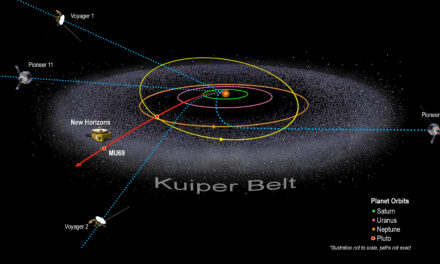The reclassification of Pluto as a dwarf planet on August 24, 2006, the International Astronomical Union (IAU) announced it had re-classified Pluto as a dwarf planet. From 1930 until then, Pluto had been considered a normal planet and the outermost planet of the solar system.
This sparked significant scientific debate and public interest. This decision redefined our understanding of the solar system, leading to varying reactions from scientists, astronomy enthusiasts, and the general public. This article will delve into the scientific consensus surrounding the reclassification of Pluto and explore the diverse range of public reactions.
Scientific Consensus
The scientific community had been discussing Pluto’s classification for many years before the IAU’s decision. The discovery of Eris, a similar-sized object in the Kuiper Belt, raised questions about the definition of a planet. As a result, the IAU convened in 2006 to establish a clear set of criteria for classifying celestial bodies.During the meeting, a resolution was passed defining a planet as a celestial body that orbits the Sun, is spherical in shape, and has cleared its orbit of debris. By this definition, Pluto did not meet the criterion of clearing its orbit, as it shares its orbital path with other objects in the Kuiper Belt. Consequently, Pluto was reclassified as a “dwarf planet,” a term that encompasses other similar-sized celestial bodies that do not meet the criteria for full planetary status.
The scientific consensus that emerged from this decision was largely supportive of the reclassification. Astronomers and planetary scientists generally agreed that the IAU’s criteria provided a more precise definition of what constitutes a planet. They argued that applying consistent rules to all celestial bodies would help clarify the solar system’s structure and promote scientific understanding.
Public Reactions
The public reactions to Pluto’s reclassification were diverse, ranging from disappointment and nostalgia to acceptance and excitement about the new classification system. Some people had grown up with the notion of Pluto as the ninth planet and found it difficult to let go of the familiar classification. They expressed nostalgia for the demotion of Pluto, considering it a loss of a beloved member of the solar system.On the other hand, many individuals embraced the reclassification, seeing it as an opportunity to learn more about the intricate nature of our celestial neighborhood. They recognized the need for a clear and consistent definition of planets, appreciating that scientific advancements sometimes require revisions to long-held beliefs.
The reclassification of Pluto also sparked widespread interest in astronomy and planetary science. It served as a catalyst for public engagement and encouraged discussions about the nature of science, classification systems, and the evolving understanding of our universe. Educational institutions and science communicators seized the opportunity to explain the reclassification and promote scientific literacy.
Conclusion
The reclassification of Pluto as a dwarf planet generated a significant scientific consensus, with most astronomers and planetary scientists supporting the IAU’s criteria for classifying celestial bodies. While some members of the public expressed disappointment or nostalgia, others embraced the change, recognizing its potential to enhance scientific understanding. Overall, this debate brought attention to the evolving nature of scientific knowledge and the importance of ongoing exploration and discovery in our quest to comprehend the universe we inhabit.References
- International Astronomical Union (IAU)
- NASA – The Solar System Exploration: Planets
- Brown, M. E., & Butler, B. J. (2018). The Dwarf Planets. In The New Solar System (5th ed., pp. 213-235). Cambridge University Press.










